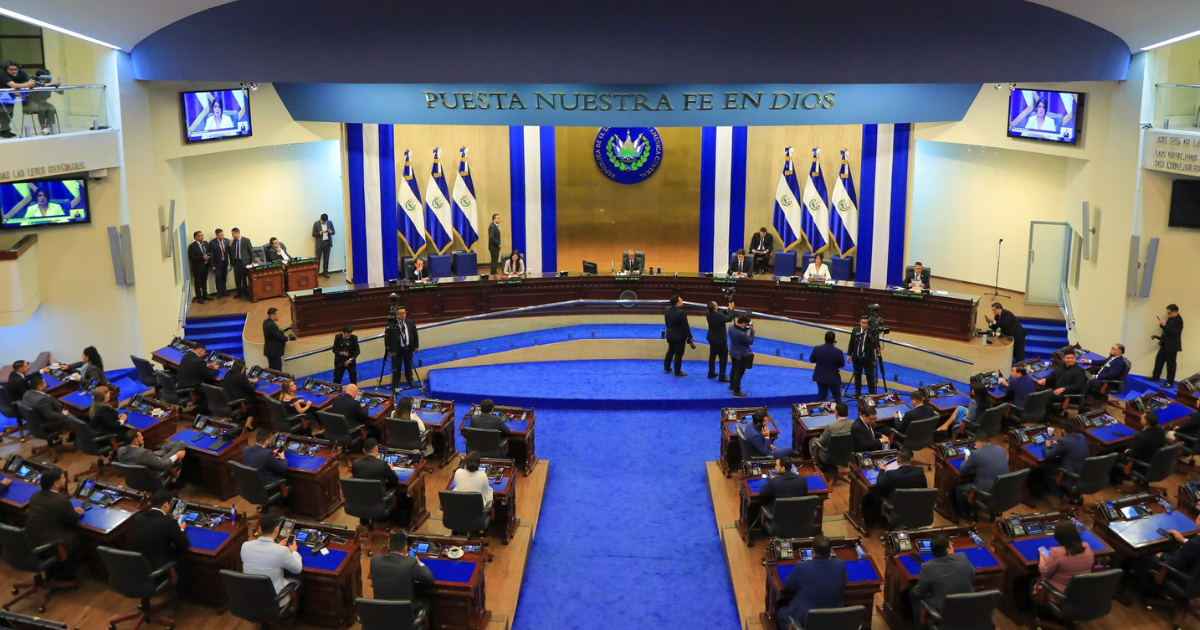With the new configuration of the commission structure in the Legislative Assembly, multiple organizations, human rights defenders, and others have already spoken out against the drastic reduction from 20 to eight commissions, eliminating some such as the Justice and Human Rights Commission, the Women and Gender Equality Commission, and others.
Regarding the Justice and Human Rights Commission, which was led by lawmaker Rebeca Santos of the Nuevas Ideas party, it had, since October 2021, a Transitional Justice Law proposal that was created in consultation and with the participation of the very victims of the armed conflict who have historically demanded truth and justice in the face of a state of impunity. The proposal was also created following the Constitutional Chamber’s ruling that repealed the controversial General Amnesty Law and ordered the Assembly, almost eight years ago, to create a Transitional Justice Law.
For David Morales, former Human Rights Prosecutor and Head of Transitional Justice at Cristosal, the dissolution of said commission represents a forceful message from lawmakers. “The perspective is quite negative in the sense that there is a continuity of the governing style, which does so with contempt for human rights, toward the victims, and only addresses the issue in contexts where the topic of transitional justice or the victims of armed conflict are useful for generating official electoral or institutional propaganda, but such propaganda is not translated into concrete actions in favor of the victims,” he stated.
Morales questioned that the recently completed legislative period was characterized by not giving priority or having the political will to fulfill its obligations, such as creating said law that would guarantee victims the longed-for truth, justice, reparation, and guarantees of non-repetition.
“The suppression of human rights issues in the commissions reflects this new way of governing: governing with authoritarianism, without dialogue, without real parliamentary debate, adopting, with a total absence of separation of powers, basically the proposals that are sent by the Republic’s presidency and ignoring the proposals presented by civil society,” he emphasized.
The human rights defender also pointed out that, to date, it is unknown whether the proposal submitted by the victims since 2021 has been filed away and, therefore, it should continue in the process for lawmakers to study it and listen to the victims; the scenario is negative. This, he explained, is because the newly elected Legislative Assembly has the same party composition, meaning a predominance of the ruling party (out of 60 lawmakers, 54 are from Nuevas Ideas).
“Un desprecio a los derechos humanos”, David Morales ante eliminación de Comisión de Justicia y Derechos Humanos
Con la nueva conformación de la nueva estructura de comisiones en la Asamblea Legislativa, son múltiples las organizaciones, defensores de derechos humanos, entre otros, que ya se han pronunciado ante la drástica reducción de 20 a ocho comisiones, eliminando algunas como la Comisión de Justicia y Derechos Humanos, la de Mujer e Igualdad de Género y otras más.
Al respecto de la Comisión de Justicia y Derechos humanos, que la lideró la diputada Rebeca Santos del partido Nuevas Ideas, tuvo desde octubre de 2021 una propuesta de Ley de Justicia Transicional, que fue creada en consulta y con la participación de las mismas víctimas del conflicto armado que históricamente han exigido verdad y justicia frente a un Estado de impunidad. La propuesta también fue creada tras la resolución de la Sala de lo Constitucional con la que derogó la polémica Ley de Amnistía General, y con la que ordenó a la Asamblea, hace casi ocho años, generar una Ley de Justicia Transicional.
Para David Morales, exprocurador de Derechos Humanos y jefe de Justicia Transicional de Cristosal, la disolución de dicha comisión representa un mensaje contundente de los legisladores. “La perspectiva es bastante negativa en el sentido que hay un continuismo de la forma de gobernar, que lo hace desde el desprecio de los derechos humanos, hacia las víctimas y que aborda el tema únicamente en coyunturas, en las cuales, la temática de justicia transicional o las víctimas del conflicto armado les es útil para generar propaganda oficial electoral o de imagen institucional, pero no se traduce esa propaganda en hechos concretos a favor de las víctimas”, manifestó.
Morales cuestionó que el periodo legislativo que recientemente finalizado se caracterizó por no dar prioridad, ni tener voluntad política por cumplir con sus obligaciones, tales como generar dicha ley que garantizaría a las víctimas la tan anhelada verdad, justicia, reparación y garantías de no repetición.
“La supresión de la temática de derechos humanos en las comisiones refleja esta nueva forma de gobernar: gobernar con autoritarismo, sin diálogo, sin verdadero debate parlamentario, adoptando con una total ausencia de división de poderes básicamente las propuestas que son enviadas por la presidencia de la República e ignorando las propuestas que presenta la sociedad civil”, enfatizó.
El defensor de derechos humanos indicó, además, que, si bien a la fecha, se desconoce si la propuesta presentada por las víctimas desde 2021 ha sido archivada y, por lo tanto, esta debería continuar en trámite para que los legisladores la estudien y escuchen a las víctimas; el escenario es negativo. Esto, detalló, debido a que la nueva Asamblea Legislativa electa presenta la misma composición partidaria, es decir, un predominio del oficialismo (de 60 diputados, 54 son de Nuevas Ideas).

